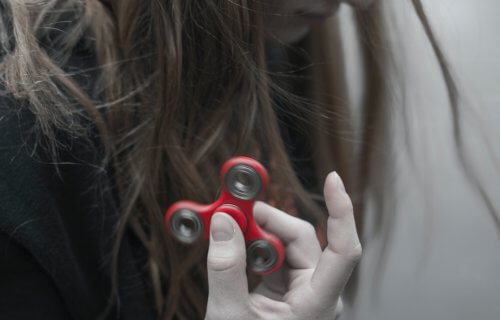VANCOUVER, British Columbia — Can’t stand it when people around you are fidgeting or pacing? You may be suffering from a case of misokinesia, or a hatred of movements. On the bright side, at least you’re not alone. Researchers from the University of British Columbia report that up to one-third of the population is easily irritated by fidgeting.
Researchers define misokinesia as a strong negative emotional response to viewing someone else’s small and repetitive movements.
“This study is the first of its kind on misokinesia,” says lead author Sumeet Jaswal, a PhD student in UBC’s department of psychology, in a university release. “Surprisingly, scientific research on the topic has been lacking.”
Study authors conducted a total of three experiments to reach these conclusions, encompassing 4,100 people. Participants described how they feel when they see others fidgeting. Surveys also assessed the social and emotional aspects of misokinesia. That process led to the finding that roughly one in three adults are “sensitive” to others’ fidgeting.
“These participants were negatively impacted emotionally and experience reactions such as anger, anxiety or frustration,” explains senior study author Dr. Todd Handy, a UBC psychology professor. “They were also negatively impacted socially and report difficulty and reduced enjoyment in social situations, work and learning environments. Some even pursue fewer social activities because of the condition.”
Seniors more sensitive to fidgeting?
It’s worth noting that older adults appear to have a particularly hard time coping with others’ fidgeting. This suggests, study authors say, that misokinesia may increase with age.
Moreover, researchers speculate that mirror neurons may be involved with misokinesia somehow. Mirror neurons activate in the brain when a person moves, but they also turn on in response to movements from other people. The very name “mirror neuron” is a reference to this: the neurons “mirror” the movements of others in our brain.
“These neurons help us understand other people and the intention behind their movements,” Jaswal adds. “They are linked to empathy. For example, when you see someone get hurt, you may wince as well, as their pain is mirrored in your own brain and that causes you to experience their emotions and empathize with them.”
“A reason that people fidget is because they’re anxious or nervous so when individuals who suffer from misokinesia see that, they may mirror it and feel anxious or nervous as well,” she continues.
Moving forward, researchers want to conduct further research on this topic. For instance, are genetics involved at all?
“To those who are suffering from misokinesia, ‘You are not alone. Your challenge is common and it’s real. As a society, we need to recognize that a lot of you suffer silently from this visual challenge that it can adversely impact your ability to work, learn in school and enjoy social situations’,” Dr. Handy concludes. “It’s a widely shared challenge that no one has ever really talked about. By starting this discussion, there is reason for hope in better understanding and outcomes.”
The study is published in Scientific Reports.
